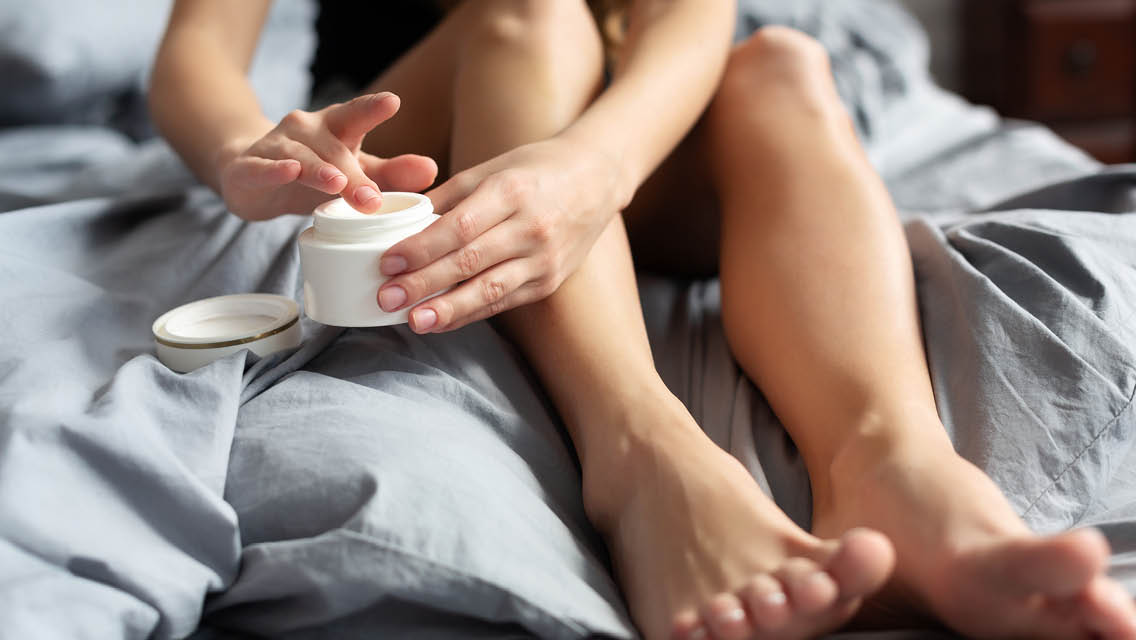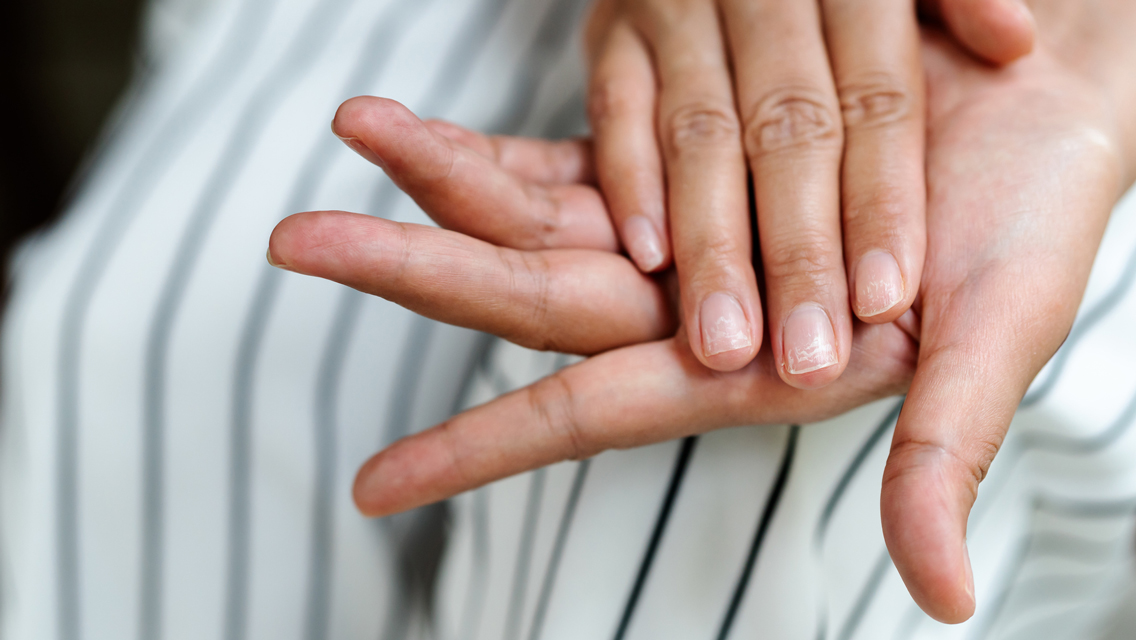Possible causes: Plantar warts, fungal infections, gut dysbiosis, thyroid issues
Our feet are subject to lots of rubbing, friction, and contact with moist environments, from the insides of our socks to the shower floor at the gym. While blisters and calluses can be handled with a little TLC and a change of shoes, warts and persistent fungal infections are tougher nuts to crack.
“Plantar warts are associated with the human papillomavirus [HPV],” notes Emily Splichal, DPM, a functional podiatrist at the Center for Functional and Regenerative Podiatric Medicine in Chandler, Ariz. Genetics and overall immune status can affect how well someone fights HPV. Some may develop small warts that self-resolve, while others end up in long battles with warts that refuse to disappear.
“Warts like dark, wet environments,” she says. “If you’re keeping your feet in socks for 10 hours a day, that’s a perfect breeding environment.” She suggests exposing your feet to open air as much as possible to dry them out.
Splichal also cautions against picking at a plantar wart, because they can spread to your hands or your other foot.
For small warts, applying a topical salicylic acid might do the trick, she notes. “But when they get larger, you want to go to a podiatrist or dermatologist so they can freeze or burn it off.”
Meanwhile, dry, itchy skin on the feet usually signals fungal infection. Fungus can infect the nails, the skin between the toes, or the bottom of the foot. “They’re all treated a little bit differently,” Splichal says.
An infection under the nail might require oral medications. “If you just put something topical on, it’s hard for the medication to get through the hard nail to reach it.”
Treating a fungal infection that starts between the toes and spreads, such as athlete’s foot, requires keeping moisture-prone areas dry. These infections can usually be treated with antifungal creams or sprays. Tea tree oil is a natural antifungal treatment for athlete’s foot.
Some providers see fungal infections on the feet as a sign of gut dysbiosis and an excess of fungus in the GI tract. “When we address what’s going on at a gut level, we have a much better opportunity to get rid of it,” notes Robert Kornfeld, DPM, a holistic podiatrist at the Chronic Foot Pain Center in New York City.
Finally, itchy feet can occasionally signal a problem with the thyroid. “Thyroid dysfunction causes problems [with] replenishing and replacing skin cells,” he explains. That can lead to dry and dead cells accumulating on the surface of the skin, causing itchiness.
As the literal foundation of our bodies, our feet are crucial to keeping us active and healthy. See “What Your Feet Are Trying to Tell You,” from which this article was excerpted, for more common foot issues and steps to relieving them.





This Post Has 0 Comments